

With women playing an increasingly pivotal role in the wealth and investment management industry, what can we learn from women in wealth about advising women with wealth?
International Women’s Day this weekend provides an ideal catalyst for the conversation around the trends already changing the industry and how firms can adapt to leverage the undeniable power of women.
InvestmentNews has asked some of the industry’s trailblazers to share their insights, with some common themes.
Women are controlling a larger share of wealth and typically live longer than men, setting the stage for women taking key financial decisions for themselves and their heirs. But while they are not about to hand the responsibility entirely to advisors, they want to utilize the expertise of industry professionals in ensuring strong wealth management.
However, advisors and firms cannot simply assume that the marketing, communication, and advisory techniques that may work well with male clients, will translate wholesale to the growing cohort of successful, wealthy women.
Emily Rubin, Private Wealth Advisor at UBS:

“For women it is all about finding an advisor they feel comfortable with and trust. I find women are even more likely to seek out referrals from other women and family.
Regarding communication styles, a softer approach is often preferable. I find it is helpful to minimize financial jargon and spend a lot more time listening and asking questions than talking. I also think it helps to provide a very clear roadmap of next steps and the process, as well as transparency on fees, so there are fewer unknowns.
For women that have been more reluctant to get involved in the family finances, this process both sparks their interest and builds trust. Through thoughtful questions, we gain insight into their true priorities, which often extend beyond maximizing their personal financial results to include legacy concerns like supporting children and philanthropy.”
Belinda Herzig, Director, Global Tax and Senior Wealth Strategist at BNY Wealth:
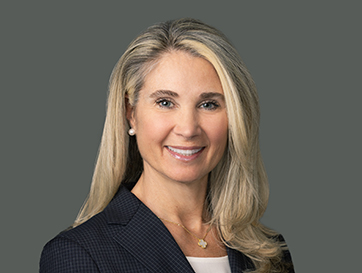
“Reach out to clients often. Communicating is critical especially with clients concerned about unsettling political and geopolitical events. Monitor changes to legislation and case law. Making clients aware of shifts that may impact their tax or estate plan creates a bond.
Listening is the key to being a good advisor.
Many of our clients are driven by developments within the gift and estate tax landscape so they value the connection with our Wealth Strategists the most.”
Erin Wood, SVP of Advanced Planning, AssetMark:
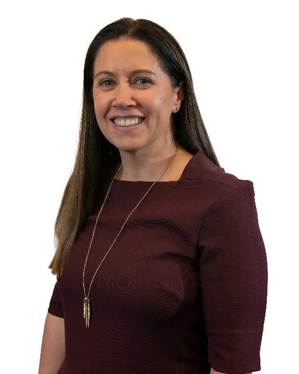
“Advisors need to recognize that women are highly focused on education and prefer not to be spoken to in a condescending or patronizing manner.
Building trust with female clients involves paying attention to the little things. Small talk, for instance, doesn't necessarily need to revolve around stereotypical male interests like golf, fishing, or professional sports. I've observed many times where a male advisor will engage in such conversations with the husband while the wife is left feeling excluded. To avoid this, advisors should focus on talking about subjects that are meaningful to women, such as family, relationships, or travel.
When it comes to managing a woman’s financial legacy, advisors should understand that many women are deeply concerned about not being a burden to their families. At the same time, women frequently want to ensure that their assets are passed down to the people and organizations they care about most. This highlights the importance of including legacy planning in client goal-setting conversations.
Laura Mattia, Senior Vice President and Financial Advisor at Wealth Enhancement:
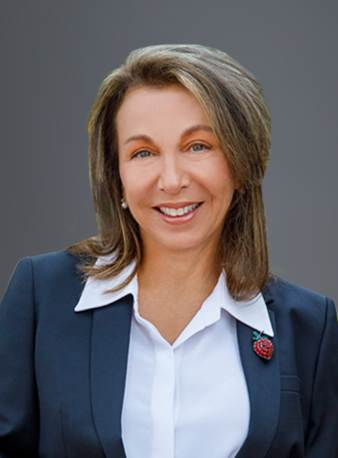
“Women want to work with advisors who listen actively, understand their unique needs, and treat them as equal partners in the financial decision-making process. It’s also important to avoid jargon, buzzwords, and overly technical language, instead explaining financial concepts in clear and simple terms that are easy to grasp.
Another important aspect is prioritizing education over sales. Many women like the fiduciary model with transparency and minimized conflicts. As mentioned, they don’t want to simply hand over their money, they want to understand. Advisors should aim to communicate in a manner that invites questions and encourages dialogue.
Female clients often prefer to work with advisors who are transparent about potential risks and conflicts of interest and who take the time to build a relationship over time, rather than rushing to close a deal. An advisor who regularly checks in with the client, provides updates, and engages in meaningful conversations about their financial progress can help alleviate the inherent skepticism about the industry.”
Donna Walton, Wealth Strategist, TD Wealth:
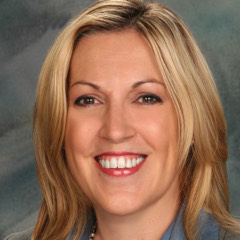
“The most important thing to remember is that women are not a homogenous group. Women do not all have the same goals and priorities, risk tolerance or circumstances. There is no one size fits all approach, therefore marketing must leave behind the old fashioned gender stereotypes and focus on creating relationships and crafting a plan for their individual needs.
Involve them in the process. Do not come to the meeting with preconceived ideas of who the client is, their level of financial sophistication, or what they need or should need.”
Geri Pell, Ameriprise Private Wealth Advisor & Co-Founder of Rise Private Wealth Management:
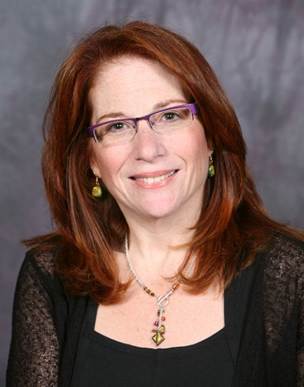
“Often, women are the ‘sandwich generation’ caring for both their aging parents and their children. We want to empower women to feel they are making educated financial decisions regardless of age, marital status, or family situation.
Taking the time to listen and become a trusted partner and confidant can help alleviate the pressures that often come along with navigating the complexities of wealth and taking control of finances. I am a firm believer that working with an advisor and talking about money should be a stress-reducing process that brings peace of mind and overall confidence in achieving both short and long-term goals.
“One thing we do at Rise, my practice, is host an annual ‘bootcamp’ for our clients’ children who are at the point of wrapping up their education and/or entering the workforce. We cover everything from the basics of checking accounts and 401(k)s to understanding their own values about money and finances. Our clients appreciate that we are getting them to think about these things early and it helps to set their children up with a strong financial planning foundation from a young age.”
Lauren Moone, Managing Director at Farther:
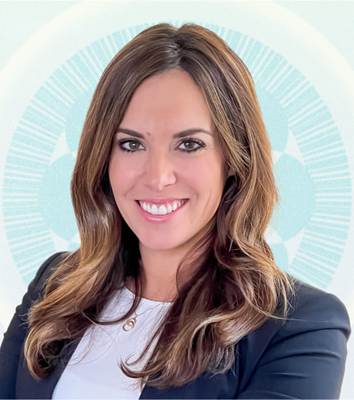
“Women like to know that the person who is managing their wealth is genuine – authenticity is key. Women are oftentimes hesitant about where they put their wealth because they don’t want to feel as if they’re being “sold,” especially if they are coming out of a traumatic life event, such as divorce or the loss of a spouse. In these situations, it is crucial to not only be there as a financial advisor for your client, but also to be a trusted confidant and someone your client can turn to.
It's also important to engage your audience when it comes to marketing efforts. For example, I host quarterly “Wine + Wisdom” sessions that allow me to meet with my female clients, as well as potential clients, and chat with them about economic trends and topics I’m seeing in the world that might impact their wealth. Fostering a forum for open dialogues and to answer questions can help advisors form deeper connections and establish trust with your clients.”

"The greed and deception of this Ponzi scheme has resulted in the same way they have throughout history," said Daniel Brubaker, U.S. Postal Inspection Service inspector in charge.

A survey reveals seven in 10 expect it to be a source of income, while most non-retired respondents worry about its continued sustainability.

AI suite and patent for AI-driven financial matchmaking arrive amid growing importance of marketing and tech among advisory firms.

The RIA's addition in Dallas, previously with Raymond James, comes just as the take-private deal between Corient's parent firm in Canada and Mubadala Capital comes to completion.

LPL's head of HNW planning says too many advisors are making a common mistake.
Stan Gregor, Chairman & CEO of Summit Financial Holdings, explores how RIAs can meet growing demand for family office-style services among mass affluent clients through tax-first planning, technology, and collaboration—positioning firms for long-term success
Chris Vizzi, Co-Founder & Partner of South Coast Investment Advisors, LLC, shares how 2025 estate tax changes—$13.99M per person—offer more than tax savings. Learn how to pass on purpose, values, and vision to unite generations and give wealth lasting meaning
